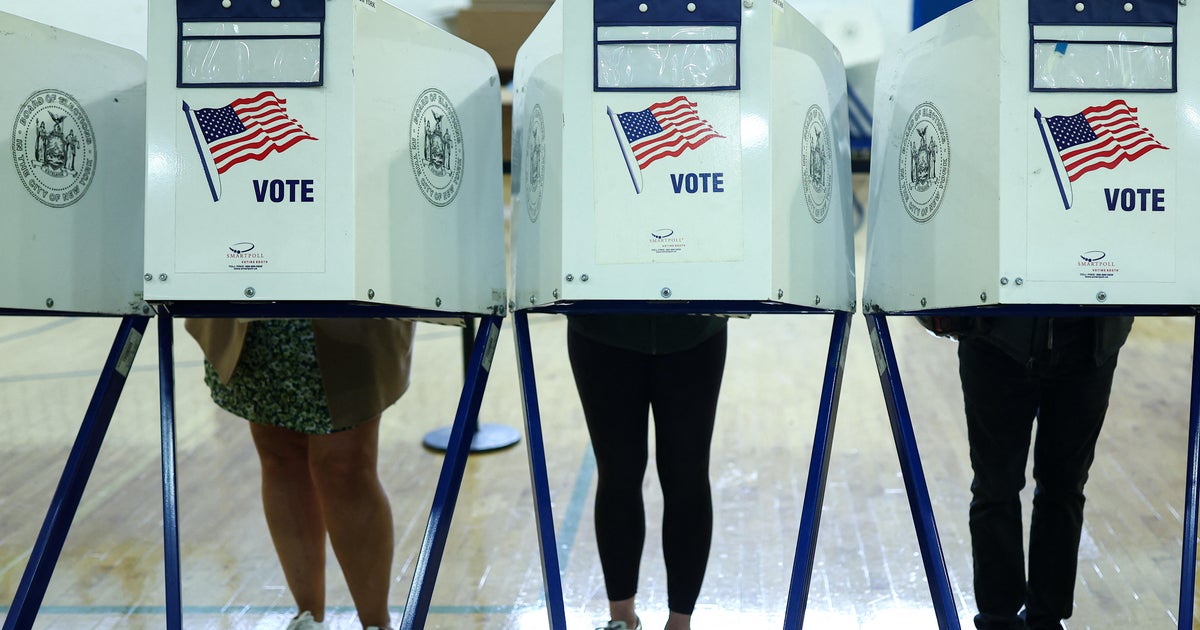Elizabeth Warren releases massive plan to address issues facing Native Americans
Sen. Elizabeth Warren, whose past claims of Cherokee heritage are often mocked by President Trump, released a massive set of policy proposals Friday aimed at alleviating hardship in the Native American community.
The Democratic presidential candidate's agenda for "honoring and empowering Tribal Nations and indigenous peoples" is twice as long as any of her dozens of other plans. And it was released ahead of her appearance Monday alongside several other 2020 hopefuls at a Sioux City, Iowa, event billed as the "first-ever presidential forum focusing entirely on Native American issues."
O.J. Semans, who with his wife Barb founded the organization that conceived of the forum, was on his way to Sioux City from their home on the Rosebud Indian Reservation in South Dakota when Warren released her plan. He pulled over to read it.
"They basically nailed what we were talking about," said Semans, the co-executive director of Four Directions, a Native American voting rights advocacy group.
Warren's set of proposals, by far the most extensive plan to help Native Americans released by any presidential candidate, makes no mention of the controversy surrounding her claims of Cherokee heritage. Last fall, Warren attempted to preemptively counter accusations that she could not prove Native American ancestry by taking a DNA test, a move that was criticized at the time by the Cherokee Nation and other indigenous groups.
Warren's claims about her heritage have since largely fallen off the political radar, although it's still a subject that comes up with voters on the campaign trail. But with the Massachusetts senator rising in the polls, Mr. Trump promised Thursday to bring the issue back.
"You got Pocahontas rising," he said at a New Hampshire campaign rally that night. "We will revive it," he said.
Semans said that while reporters are sure to ask Warren about the DNA test at the forum, the moderators have no interest in it.
"Her controversy really doesn't reflect upon our issues," he said. "I keep telling people that this is about Native American issues, not about a candidate's history."
Since the DNA test, Warren has worked to establish a better relationship with the Native American community. Earlier this year, she teamed up with Rep. Deb Haaland, one of the first Native American women elected to Congress, to release a legislative proposal called the Honoring Promises to Native Nations Act. But Warren said they won't introduce a product in Congress without input from a long list of Tribal stakeholders.
"It actually allows us to have input," said Semans, a member of the Sioux Nation. "We're not getting a letter saying, 'This is what you're going to do,' but instead, 'You'll have real input to create change for the better.'"
Several of Warren's previous plans, including those on helping rural America and on fighting the opioid epidemic, include specific portions to help Native American communities. But in this set of additional proposals, she called for sweeping "structural change" to combat the chronic poverty faced by many Native Americans.
Warren's new plan promises she would revoke the permits for the Keystone XL and Dakota Access pipelines, meet treaty obligations and give Native Americans a voice in the White House. She is also the first presidential candidate to promise to reverse a 1978 Supreme Court decision that said tribal nations don't have jurisdiction over non-Native Americans who commit crimes on their lands.
The plan also calls for greater opportunities for Native Americans, increased education services and protections against violence for Indigenous women. Most importantly, it addresses the government's failure to give Tribal Nations the sovereignty they were promised, said Semans.
"We must ensure that America's sacred trust and treaty obligations are the law of the land — binding legal and moral principles that are not merely slogans, but instead reinforce the solemn nation-to-nation relationships with Tribal Nations," Warren wrote.



